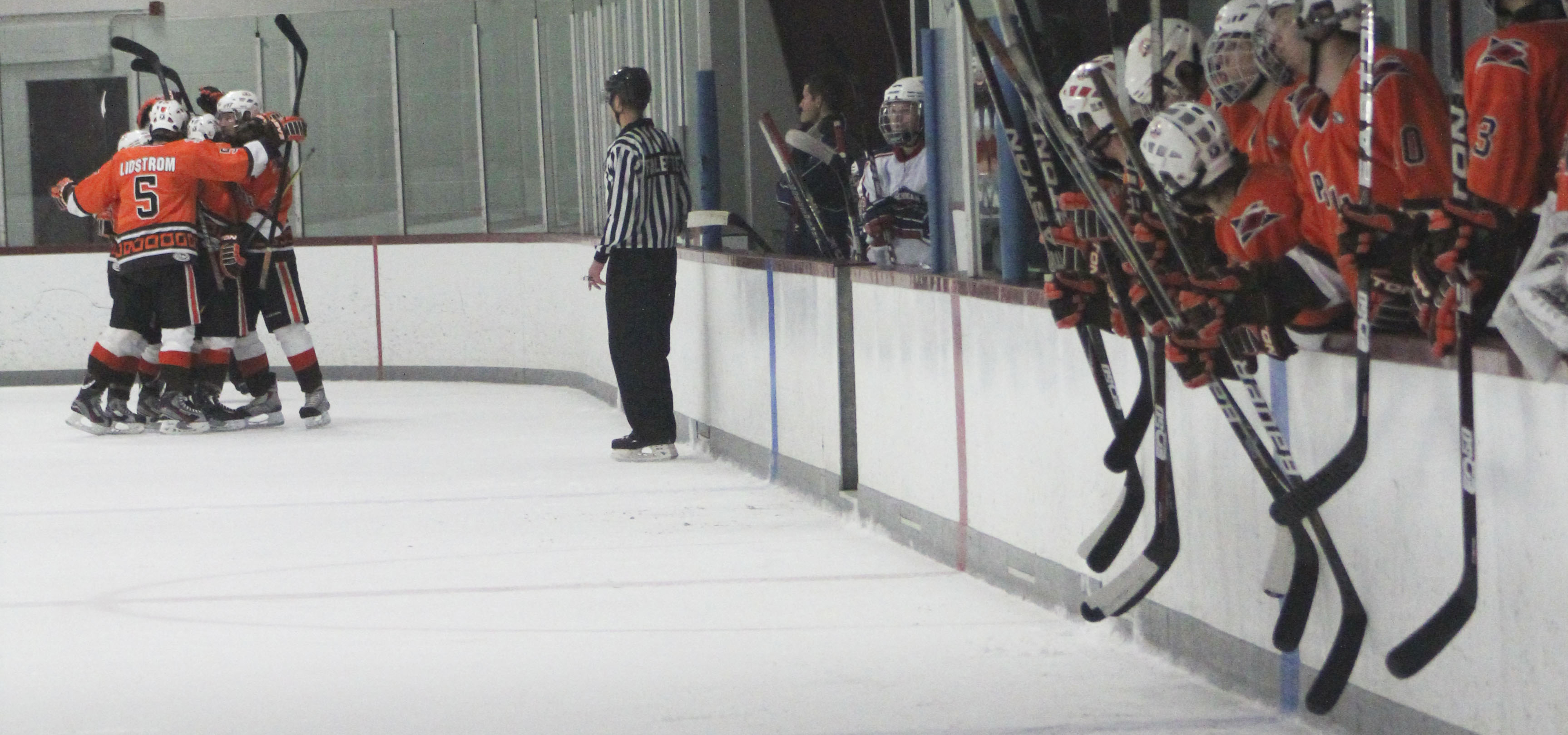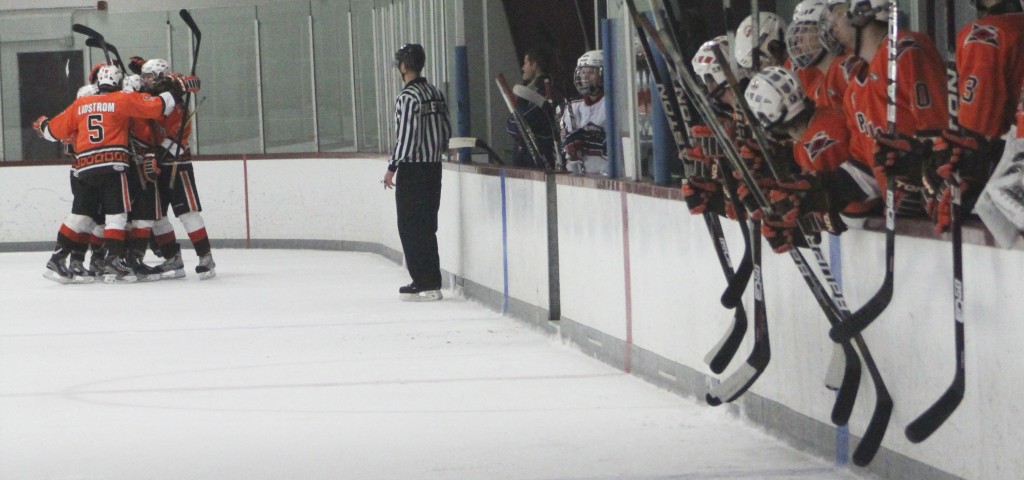The HPHL – A successful first season
Article and photos by Michael Caples –
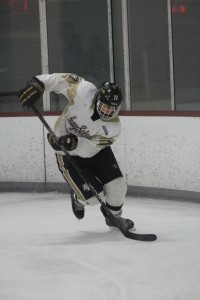 Sometimes, change is necessary.
Sometimes, change is necessary.
For the founding members of the High Performance Hockey League, the amount of travel required to participate in other Tier I leagues seemed unnecessary when considering that some of the best teams in the country play in the Great Lakes region.
That, along with a similar mindset in how to develop young hockey players both on and off the ice, led to the formation of the HPHL prior to the 2011-12 season.
“The time commitment and the financial commitment started to get pretty substantial,” said Lyle Phair, chairman of the board for the new league. “The three organizations in Michigan – Compuware, Little Caesars and Honeybaked – and three in Illinois – Chicago Young Americans, Team Illinois and Chicago Mission – got together and kind of wanted to, for lack of a better word, reset, kind of downsize.
“Some of the underlying principles of the new league were to cut down on missed school days, because school is very important, cut down on some of the costs, and to try to have a very highly competitive league with all of the games being strong competition without having to travel all over the country to do so.”
With their inaugural season nearly complete, the evaluation process begins. Karen Cullen, director of the Little Caesars program, said she has been pleased with the feedback from parents, players and coaches.
“We shared common objectives and I think we’ve held true here in our inaugural season to doing what we set out to do, and that’s where a lot of the positive feedback has come from, from coaches and parents and others who, by reducing some of the travel requirements and some things like that, has brought a lot of positives and it’s also helped to reduce some costs for folks and so I think it’s been successful.”
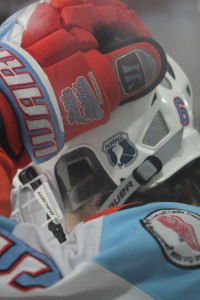 Chicago Mission director Gino Cavallini said that cutting down on the travel has greatly benefitted the Chicago teams in the HPHL, and it certainly doesn’t hurt to play elite talent just down I-94.
Chicago Mission director Gino Cavallini said that cutting down on the travel has greatly benefitted the Chicago teams in the HPHL, and it certainly doesn’t hurt to play elite talent just down I-94.
“I think the main goal was to give ourselves good competition and keep costs down, while keeping the cost down for the parents,” Cavallini said. “Without just playing ourselves like the Chicago teams playing each other and the Detroit teams playing each other, its good competition when we travel and that’s what we’re trying to do, get as good of competition we can and reduce the costs.”
But how does one truly measure success? Is it national rankings? While national titles have not been decided just yet, HPHL teams cover the ranking boards for every prominent age group. According to MyHockeyRankings.com, there are at least two HPHL teams (of a six-team league) ranked in the Top-10 nationally in Midget 18U and 16U. There are also at least two Top-10 teams in both Bantam and Peewee age brackets. The HPHL also have three teams in the Top-10 of the girls 19U rankings, two in 16U, and three in 14U.
Yet league officials take just as much pride, or more, in the fact that the majority of the players in the league are hitting the academic criteria put in place. The league launched an academic excellence program to celebrate the players who succeed in the classroom.
“It’s being so well received,” said league secretary Jill Hare. “It’s really awesome to see the amount of our players who are hitting our criteria. It’s amazing. Our criteria are 3.5 and 3.8 so those are pretty lofty goals, and there are quite a few players on each team hitting those goals.”
Hare also pointed out that many teams from across the country are calling her with a request to participate in HPHL showcases next year – another insight into the success of the league’s inaugural season.
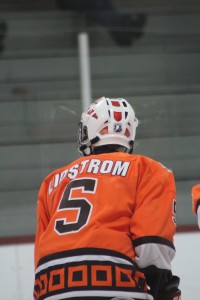 “We’ve just had what I think is an early interest in teams from all over the country, not just the great lakes region, that are looking to be a part of our guest team program next year,” Hare said. “I’m getting feedback that they like the format, they like the competition, and most of all, they like the way the travel works. “They can come in just for specific weekends and play the top teams. Sometimes to get that competition you have to go to several tournaments or spend much more on travel, and this way, they can get the top competition in one weekend.
“We’ve just had what I think is an early interest in teams from all over the country, not just the great lakes region, that are looking to be a part of our guest team program next year,” Hare said. “I’m getting feedback that they like the format, they like the competition, and most of all, they like the way the travel works. “They can come in just for specific weekends and play the top teams. Sometimes to get that competition you have to go to several tournaments or spend much more on travel, and this way, they can get the top competition in one weekend.
“It’s exciting that our teams are so highly recognized; it’s exciting that this format is appealing to everybody. It’s really exciting for the league, and being that it’s just our first year, we’re really looking for some new and improved things for next year. It’s great.”
And while the HPHL has caught the attention of other prominent US teams, they are also catching the attention of scouts.
“We really make an effort,” said Honeybaked director Joe Jones. “It’s part of what we do, and what we offer as a league is to bend over backward for that group and try to provide them with everything we can. We want them to come see our events, we want them to scout our players. They’re going to because we have some of the best teams and the best players in North America, so they’re going to come see the young players, but we want to try to make sure that we’re providing them with everything they need to help them do their job better.
“A byproduct of having a good, successful league with a lot of quality organizations is you’re going to have very successful, winning teams,” Jones continued. “I think that’s certainly something that you can look and you can say ‘yeah, these teams are all really good.’ They’re all high-quality teams, good coaching. We think we have the best coaching, the best competition, and it kind of proves itself out in not only how good these teams are, compared to everyone else around the country, but how many of these players are moving on to play at the next level.”
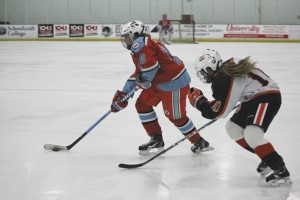 The league has even joined forces with USA Hockey to feature an officiating program designed to give the kids the experience of playing with referees from higher leagues.
The league has even joined forces with USA Hockey to feature an officiating program designed to give the kids the experience of playing with referees from higher leagues.
“When we started the league, we were working with USA Hockey,” said Mike Henry, director of the Compuware program. “USA Hockey thought they could assist in having the best officiating in the area at our games. They appointed Dan Monacelli to our league. Dan schedules all the junior programs, which are not really related to us, but we have the same referees refereeing HPHL games at the junior level, so we’re preparing our kids for the next step with having high-quality officiating.”
But no matter the amount of success they achieve on the ice, the main focus is still developing the character HPHL players will display off the ice for the rest of their lives.
“Success for us is on and off the ice,” said Henry – for both the league and his own program. “The classroom is huge; we’re developing not only hockey players but role models and character. So the success is the program, winning is not everything. It’s nice to win but developing the kids, watching the kids develop and become young adults is how we would measure success here. And again, our coaches at all our levels have done a great job at doing that.”
Phair said that as the league looks ahead to their second season, they will evaluate potentially adding more teams, but only if it makes sense for the founding organizations.
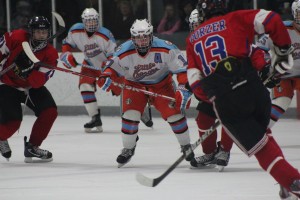 “We work real hard as a board of directors to try to listen to the parents and listen to the coaches and try to improve upon the experience every year,” Phair said. “We look at the potential of adding new teams, maybe adding a couple of teams to the league. Is an eight-team league better than a six-team league? We’re not sure; we don’t have the answer to that right now. It depends upon the organizations.”
“We work real hard as a board of directors to try to listen to the parents and listen to the coaches and try to improve upon the experience every year,” Phair said. “We look at the potential of adding new teams, maybe adding a couple of teams to the league. Is an eight-team league better than a six-team league? We’re not sure; we don’t have the answer to that right now. It depends upon the organizations.”
“Our job is to provide a league and a program for these young athletes to compete and excel and to learn and develop,” Cullen said. “They don’t need to be caught up in the day to day stuff of making a league work, but behind the scenes I think there will definitely be a lot of things that will smooth out just knowing what we know going into the second year.”

